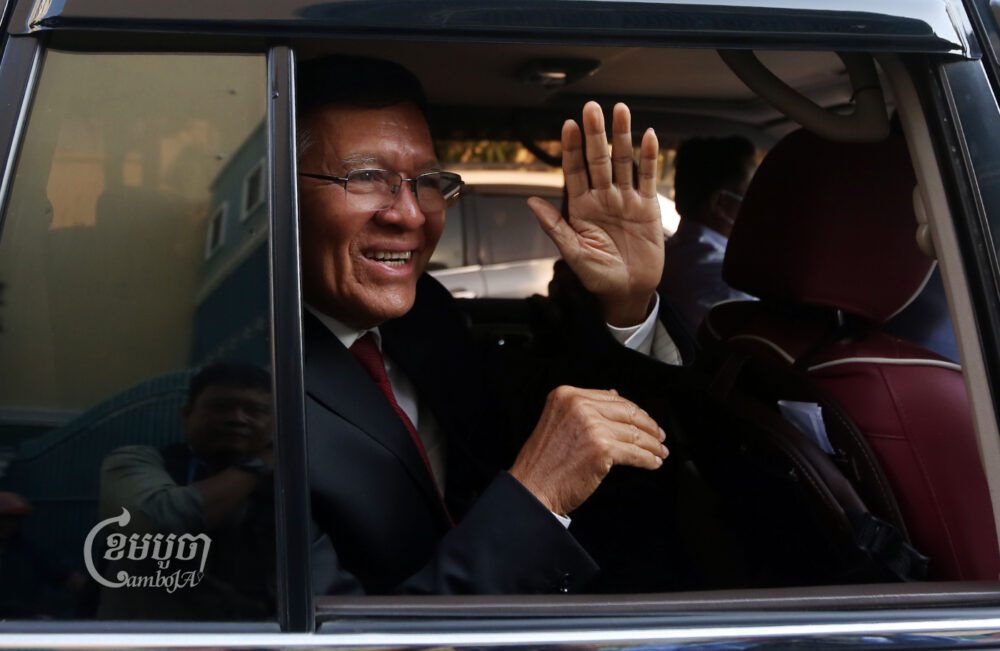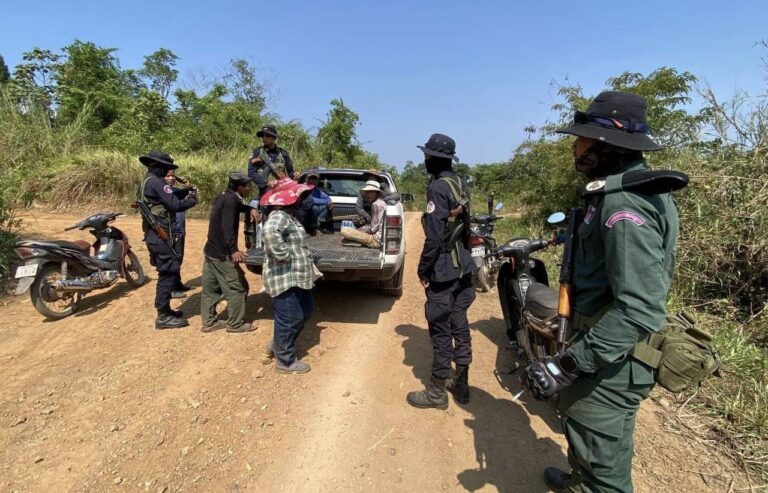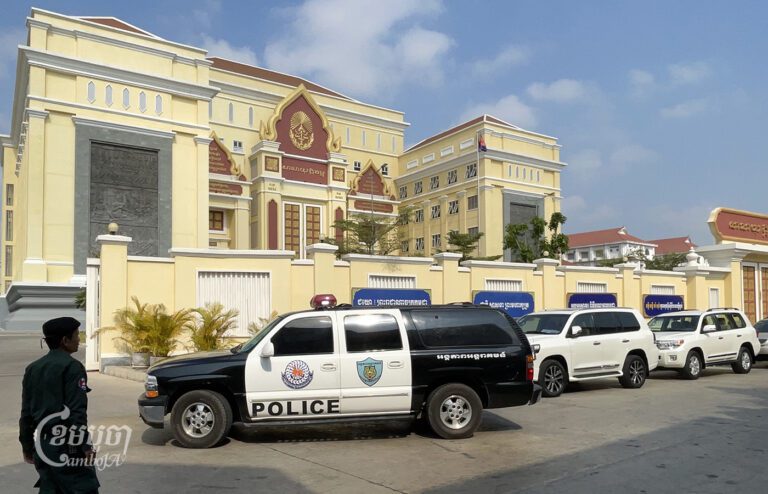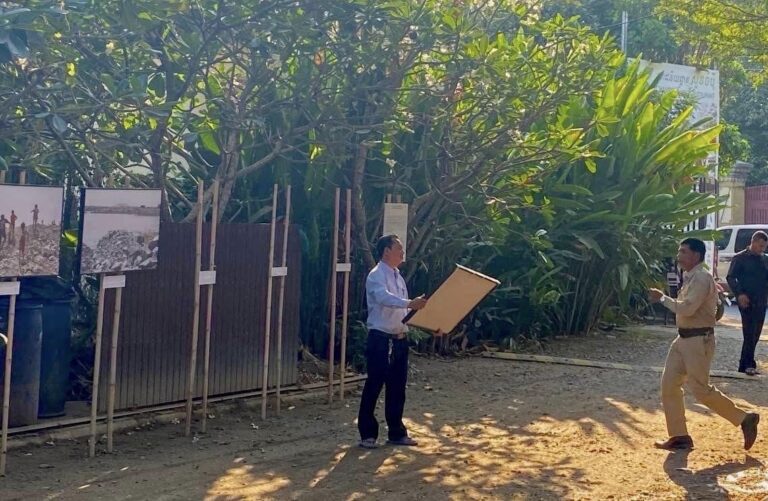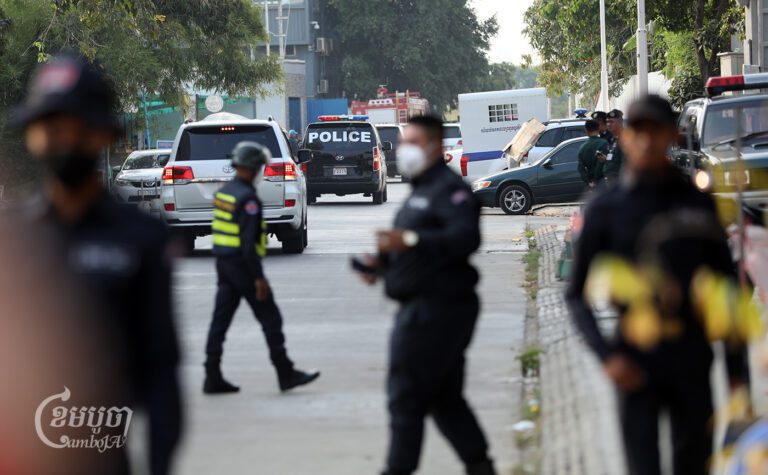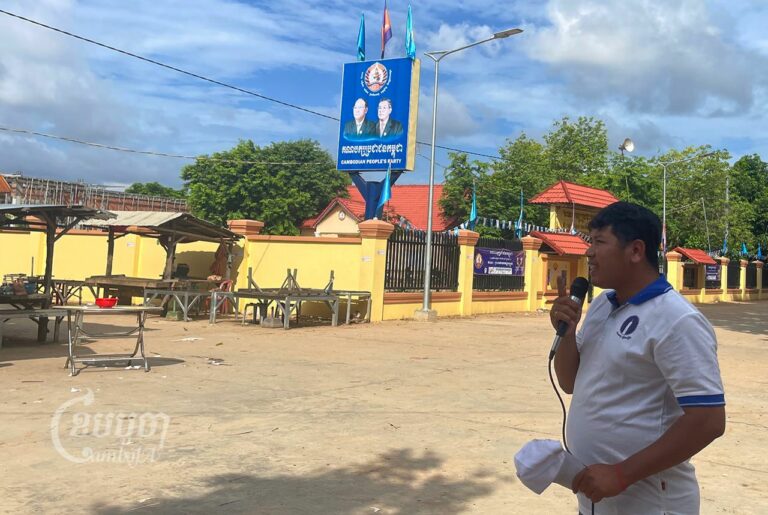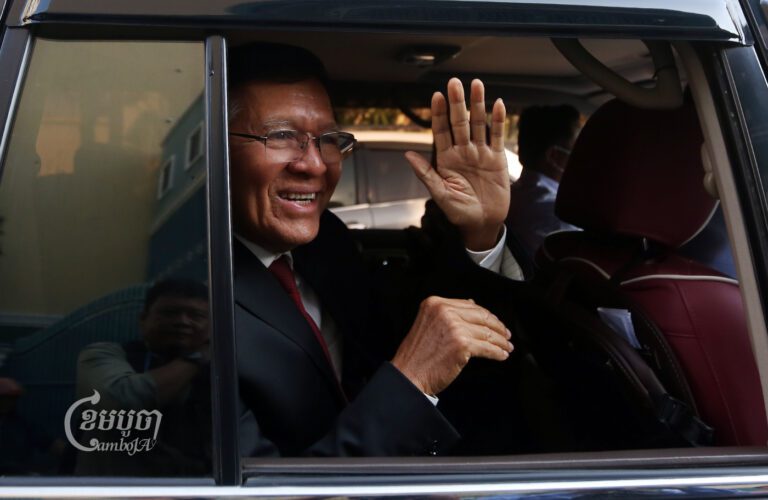A judge convicted former opposition leader Kem Sokha of treason, handing down a 27 year prison sentence and lifetime ban from politics on Friday at the Phnom Penh Municipal Court.
Silently, Sokha raised his fist in the power symbol and then pressed his palms together, head bowed, as police grabbed him and escorted him from the court following a trial that lasted more than three years and 66 hearings.
Sokha’s lawyer, human rights groups and the U.S. government condemned the verdict, which came four months ahead of the national election.
“We are deeply troubled by the conviction of respected leader Kem Sokha,” U.S. Ambassador W. Patrick Murphy posted on Twitter. “His trial, built on a fabricated conspiracy, was a miscarriage of justice.”
“Denying Kem Sokha and other political figures their freedom of expression and association undermines Cambodia’s constitution, international commitments, and past progress to develop as a pluralist and inclusive society,” the U.S. Embassy said in a statement.
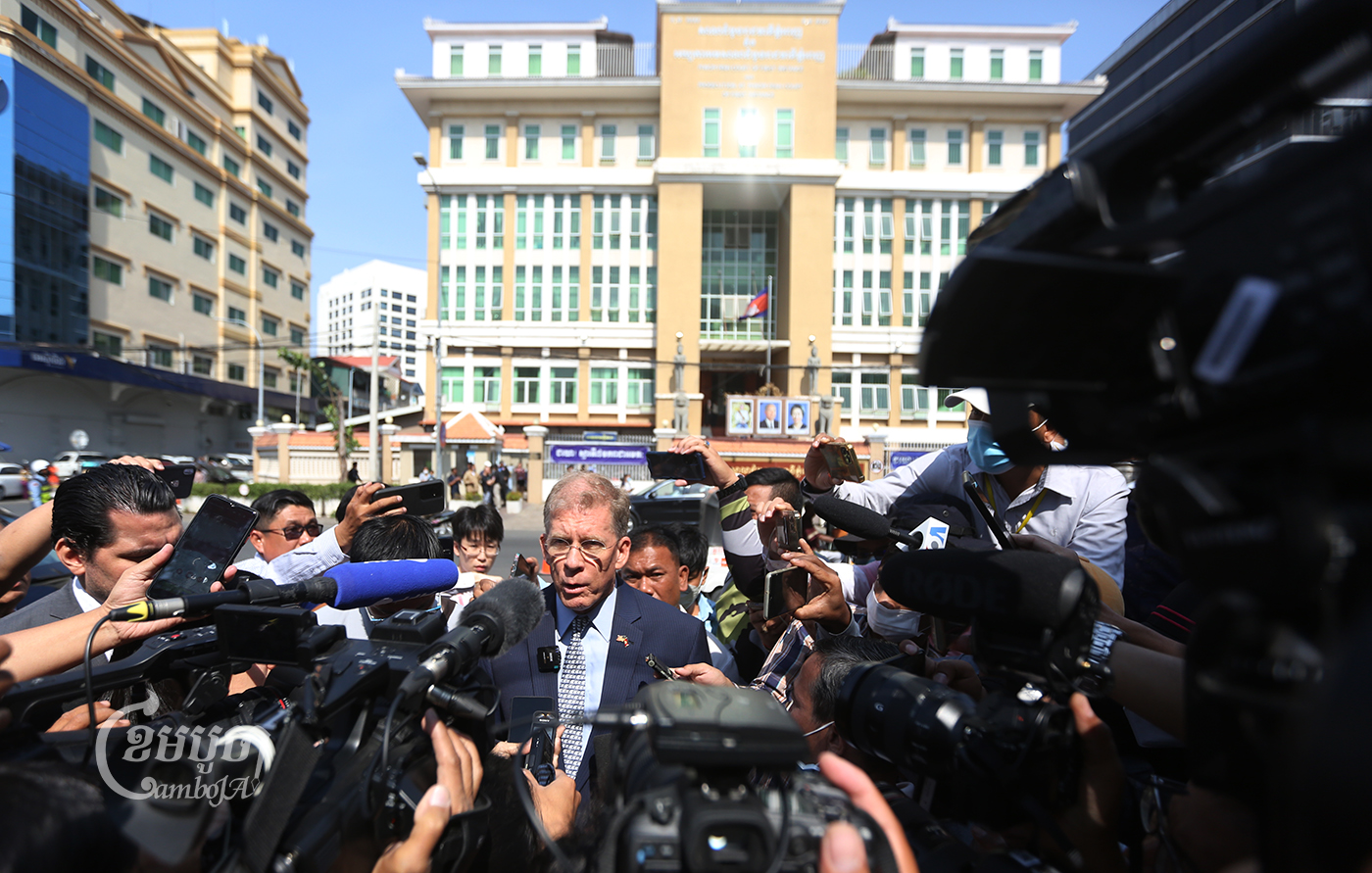
Sokha has denied the allegations that he conspired with foreign powers to overthrow the government. Rights groups have long asserted the charges were never substantiated with credible evidence. The court previously cited as key evidence a 2013 speech advocating for democracy in Cambodia.
Ang Oudom said his client would follow the court’s decision, a verdict of more than 100 pages, but maintained Sokha’s innocence.
“The verdict! For us it is unacceptable since it is an injustice,” Oudom said. “Because it does not follow any legal procedure or principle.”
Sokha would have one month to file an appeal against the more than 100 page verdict, but the conditions of his sentence would be implemented immediately, Oudom said.
“Do not leave the house, do not meet foreigners except with the permission of the prosecutor,” Oudom said, of the court’s conditions. “And if [Sokha] goes against the decision, they [prosecutor] can sue for re-detention.”
Oudom and human rights groups have claimed the trial and long-expected guilty verdict were politically-motivated to undermine the opposition, especially in the run-up to the July 23 national election.
“It was obvious from the start that the charges against Kem Sokha were nothing but a politically motivated ploy by Prime Minister Hun Sen to sideline Cambodia’s major opposition leader and eliminate the country’s democratic system,” said Phil Robertson, deputy Asia director at Human Rights Watch, in a statement. “Sending Kem Sokha to prison isn’t just about destroying his political party, but about squashing any hope that there can be a genuine general election in July.”
Ky Tech, the government’s lawyer in the Sokha case, declined to comment.
The judge said that the defendant Kem Sokha committed “treason” by colluding with unnamed foreign powers to attempt to overthrow the legitimate government from 1993 till September 2017 of his arrest.
“The court has found out that the defendant Kem Sokha gathered ‘people power’ under the pretext of demanding justice for irregularities in the [2013] elections for a ‘color revolution’ to overthrow the government,” the judge said in his verdict statement.
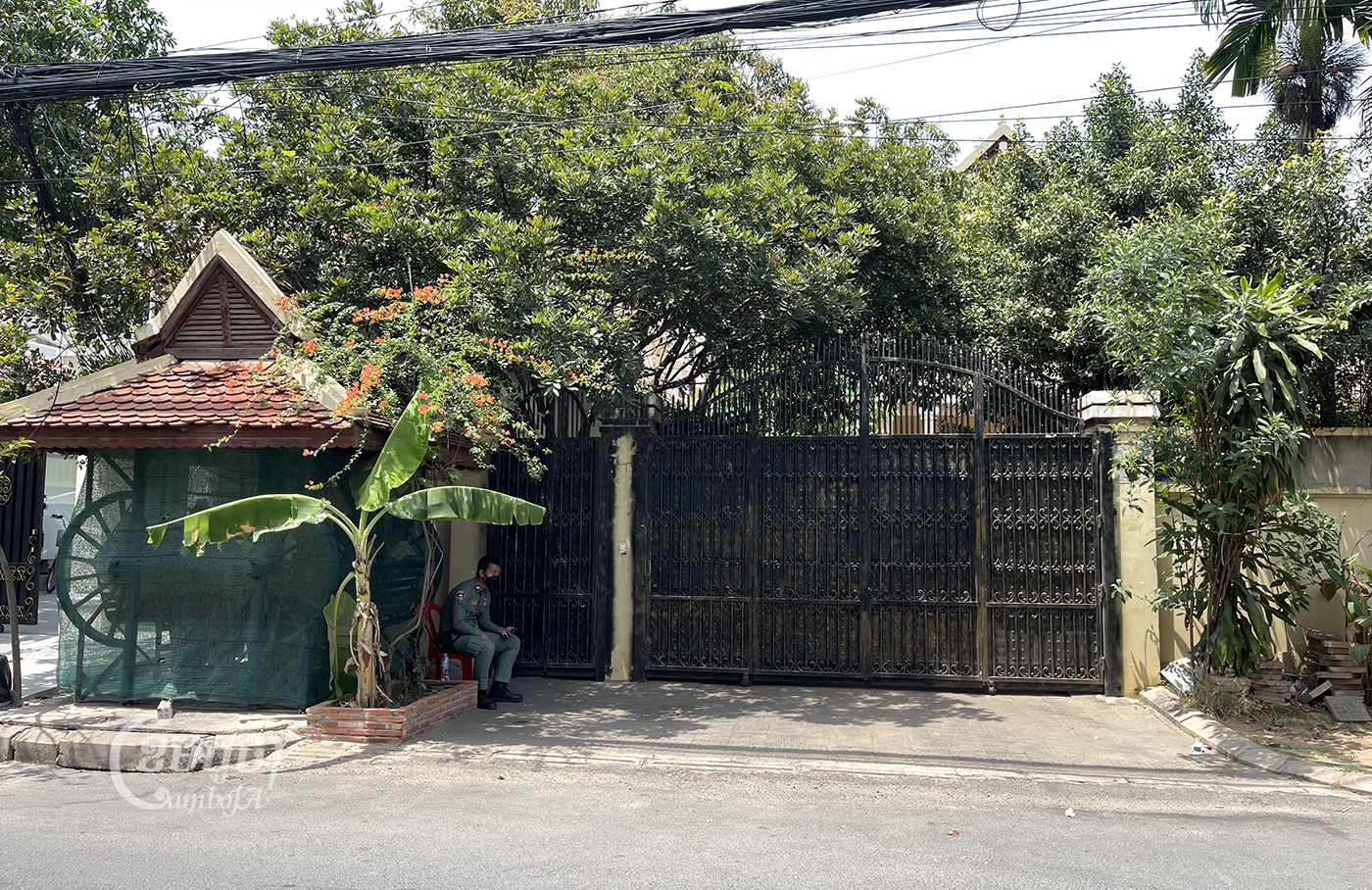
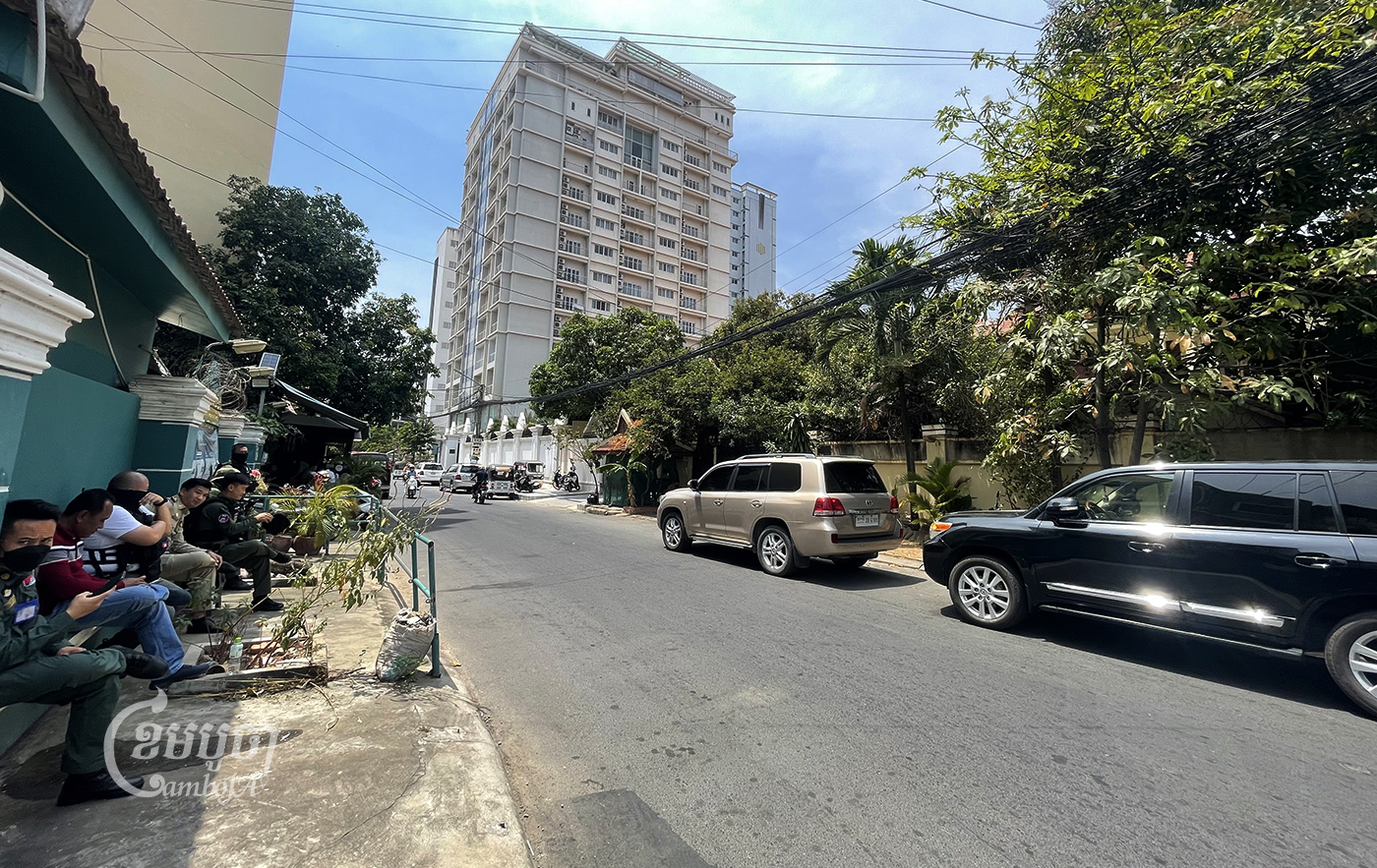
“Per the government’s lawyers’ request, the court didn’t write the name of foreign countries or foreign agencies in the verdict,” said an unsigned statement stamped by the Phnom Penh municipal court and published in government-aligned media Fresh News.
The redaction was “in order to keep good communication and maintain the national interest of Cambodia…with the foreign countries,” the statement said.
The charges against Sokha date back to September 2017, when police arrested him at his Phnom Penh home during the middle of the night. Soon after, the Cambodia National Rescue Party (CNRP), was disbanded under court-under, eliminating the ruling CPP’s only significant political rival ahead of the 2018 elections.
As part of the decision, Sokha and more than 100 CNRP members were barred from political engagement for five years, though some have since been allowed to resume political activities.
Sokha was imprisoned, later transitioned to house arrest and eventually given some ability to travel inside Cambodia but always remained under heavy surveillance.
After Sokha’s trial began in January 2020, it was suspended in March following the onset of the Covid-19 pandemic.
The hearings resumed in January 2022, with prosecutors claiming the NGO Cambodian Center for Human Rights (CCHR), founded by Sokha in 2002, was created to serve foreign interests. The hearings had also focused on the source of the funds allegedly used to launch CCHR, much of which came from a democracy-promoting American nonprofit International Republican Institute.
Several trainings provided by international NGOS to teach CNRP activists about electoral processes were portrayed by the prosecution as foreign-aided efforts to overthrow the government.
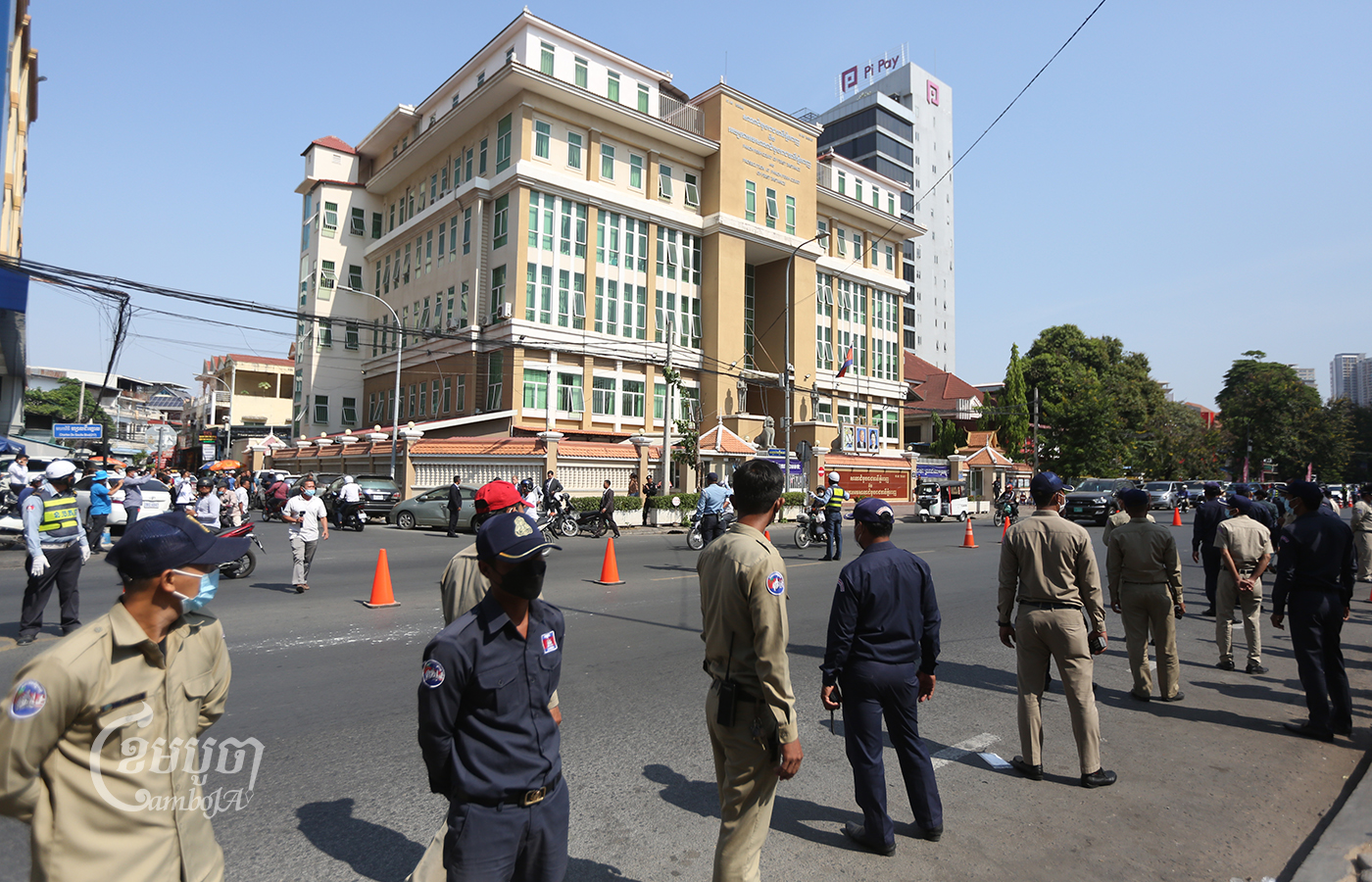
Dozens of Sokha’s supporters had gathered near the court to support him. Hundreds of military police, district security officials and other law enforcement officers were deployed to keep order. Government aligned-media and the Ministry of Interior had recently claimed American spies aligned with the opposition were trying to disrupt the verdict.
Kem Sokha and other opposition party members should not face charges for their political activities and membership in their own party, said CCHR executive director Chak Sopheap.
“This conviction clearly demonstrates the political purpose of preventing an opponent from running in the election again, which in principle should be free and fair,” she said.
Yeng Vireak, president of the Grassroots Democratic Party, had awaited the outcome in front of the court and hoped Sokha would be allowed to re-enter politics.
“He was the president of a big opposition party, so losing his political rights is not a small issue,” Vireak said. “Free and fair elections require the participation of all politicians and all political parties alike. I do not want to see this happen again.”
Em Sovannara, a political analyst, said that Sokha’s non-violent political approach had failed and many of his discouraged supporters might now turn to support the Candlelight Party.
One supporter, Chan Heoun, 62, said he traveled from Siem Reap province to support Sokha. He had hoped to see different political leaders able to work together to continue developing the country.
“I think it is injustice for Kem Sokha because there is not enough evidence to detain him, he never did anything to hurt people or harm our nation,” Heoun said. “So, he should be free.”
This article has been updated since its original publication at 10:29 a.m.


